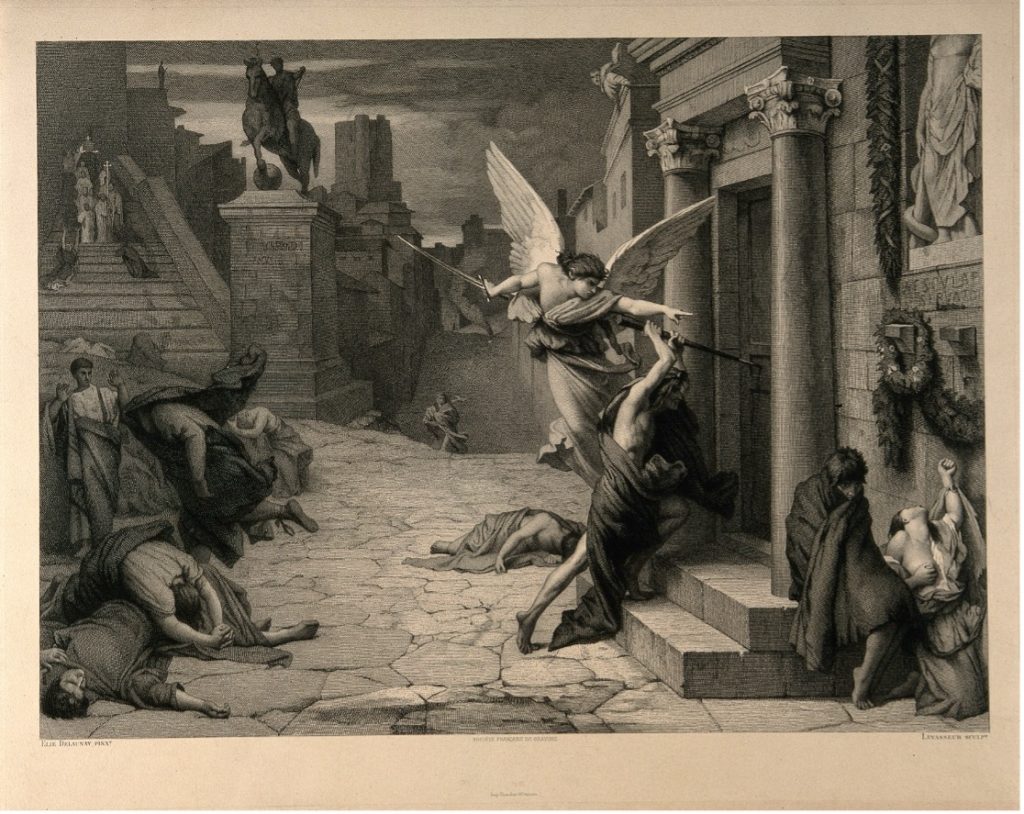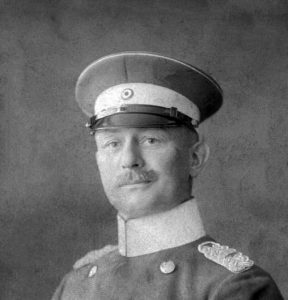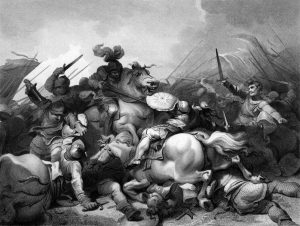Galen of Pergamon sets himself apart from all other physiologists and anatomists of the ancient world. Establishing experimental physiology singlehandedly, Galen’s contributions to medicine expressed his thirst for knowledge of the human body. It is not until Galen faced a lethal plague that his undying pursuit of knowledge became threatened by numerous obstacles.1
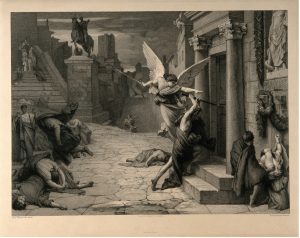
The year was 166 CE, when the Antonine Plague had produced mass terror across Rome. The streets were filled with sickness, death, and despair, all the while physicians were scrambling to make sense of the disease that swiftly killed any in its way without remorse.2 Amid the chaos stood a skilled world-renowned physician named Galen, who faced an agonizing choice, whether to risk his life to confront the plague head-on or to prioritize his own safety. Galen, being haunted by the growing death toll and his own fear of contamination, made the difficult decision to flee Rome for his hometown of Pergamon.3
Contrary to public belief, there are accounts of Galen’s retreat described as an honorable act rather than one of cowardice. According to Galen’s recollections in “On My Own Books,” scholars believe Galen did not flee from the plague, but rather towards it, motivated and determined to be utilized in a time of need. Being that Galen had relatives and childhood friends in his hometown of Pergamum, the place he fled to, this aligns more with Galen’s demeanor rather than his fleeing Rome as an unethical pursuit of retrieving the plague.4
For Galen, this was no ordinary departure. This retreat sparked controversy regarding his reputation as a physician and his character, as some today question whether a man of stature could justify leaving the empire at such a desperate time. Although this seemed unethical or a cowardly act on Galen’s part, this was not the case in Galen’s time. People did not think much of this action of retreat, and this is reflected in how Galen was still viewed with such high regard in his time.5 Yet Galen’s fear of the unknown was real, and the plague and its violent symptoms of fever, diarrhea, vomiting, and blistering eruptions, posed a lethal threat to all who encountered the plague. This internal turmoil between both self-preservation and his duty as a physician would follow Galen in one of history’s deadliest plagues, shaping his legacy as a prominent figure during the plague.6
By 167 CE, the plague’s devastation had expanded to unprecedented levels, spreading through the Roman army stationed at Aquileia. Emperor Marcus Aurelius desperately wanted to save his troops and to stabilize the empire, and in an act of great leadership, he summoned Galen back to Aquileia where Galen became a personal physician to both the army troops of the Roman Empire and to the emperor and his family.7

At Aquileia, while Galen tended the army troops, he documented the symptoms at hand. Although his documentation was brief and scattered, at the time he was not aiming for the disease to be recognized by future generations. Rather, Galen’s focus was more on the present and he aimed to discover the physical effects and possible treatment of the disease. His notes further reinforce just how enthralled and relentlessly Galen worked on developing a cure for the Antonine Plague.8
Galen’s brief documentation of the plague had a lot to do with the Great Fire of Rome in 192 CE, which tore through central Rome destroying Roman and ancient Greek scholar’s documentation and research. There were three lost libraries resulting from this tragic ordeal. The reality of the situation was that there were no other practical ways of storing and documenting important documents or manuscripts other than storing or safeguarding them in these imperial libraries. These libraries allowed scholars, like Galen, to consult the original manuscripts with convenience. However, once these rare and original documents were destroyed, there was no possible way of ever retrieving them other than using the translated copies from other scholars. However, these texts, being preserved in the form of copies, would demonstrate inconsistencies compared to the original texts. To make matters even worse, the fire consumed nearby storage facilities where scholars, such as Galen, would store documents for their own personal research. For Galen, these included notes that consisted of years of personalized research and his own personal collection of books. This fire caused setbacks for a plethora of scholars due to the fact that they had lost years of research that took long hours of hard work and dedication.9
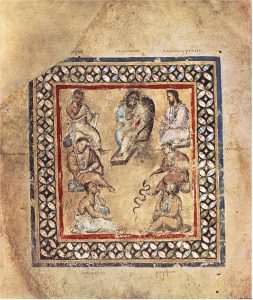
Although Galen’s documentations of the plague were extremely brief and scattered, without any direction to help future generations with identifying the plague, health professionals were still capable of using the information and research presented by Galen to identify the epidemic as exanthematous typhus or even the bubonic plague. After careful examination, there was enough information to present a firm diagnosis of the Antonine Plague as smallpox.10 Even with the devastation that the great fire of Rome brought to not only scholars but to people in surrounding areas, current-day scholars and researchers are still capable of identifying the plague, despite the odds presented towards Galen’s documentations on the Antonine Plague.11 This poses the question of whether Galen’s documentation was actually “sketchy.”12 Rather, possibly he had more in-depth documents of the Antonine Plague but were lost in a similar way to the Great Fire of Rome.13
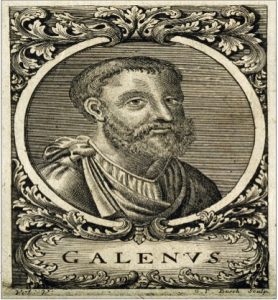
Galen’s contribution to the Antonine Plague showcases his resilience, intellectual ambition, and his everlasting legacy in medicine. Despite the chaos and devastation the plague came with, Galen remained steadfast in the midst of all the turmoil. It is especially apparent to see Galen’s perseverance through his loss of documentation during the Great Fire of Rome. The fire and the loss of research and personal collections of books would leave anyone despaired. However, Galen is like no other; he handled the loss relatively well, considering the loss at hand. His documentation of this horrid event withstands the test of time to demonstrate what a courageous and skilled physician he was. Every physician today should strive to exhibit the same characteristics Galen had during his time as a skilled physician, physiologist, and anatomist.13
- Frederick G. Kilgour, “Galen,” Scientific American 196, no. 3 (1957), 105. ↵
- R. J. Littman and M. L. Littman, “Galen and the Antonine Plague,” The American Journal of Philology 94, no. 3 (1973): 244. ↵
- Frederick G. Kilgour, “Galen,” Scientific American 196, no. 3 (1957): 105. ↵
- Susan P. Mattern, The Prince of Medicine: Galen in the Roman World (New York: Oxford University Press, 2013), 193. ↵
- Frederick G. Kilgour, “Galen,” Scientific American 196, no. 3 (1957): 105. ↵
- R. J. Littman and M. L. Littman, “Galen and the Antonine Plague,” The American Journal of Philology 94, no. 3 (1973): 247-248. ↵
- Frederick G. Kilgour, “Galen,” Scientific American 196, no. 3 (1957): 105-106. ↵
- R. J. Littman and M. L. Littman, “Galen and the Antonine Plague,” The American Journal of Philology 94, no. 3 (1973): 244. ↵
- Caroline Wazer, “Library Fires Have Always Been Tragedies. Just Ask Galen,” JSTOR Daily, June 7, 2021, https://daily.jstor.org/library-fires-have-always-been-tragedies-just-ask-galen/. ↵
- R. J. Littman and M. L. Littman, “Galen and the Antonine Plague,” The American Journal of Philology 94, no. 3 (1973): 245. ↵
- Caroline Wazer, “Library Fires Have Always Been Tragedies. Just Ask Galen,” JSTOR Daily, June 7, 2021, https://daily.jstor.org/library-fires-have-always-been-tragedies-just-ask-galen/. ↵
- R. J. Littman and M. L. Littman, “Galen and the Antonine Plague,” The American Journal of Philology 94, no. 3 (1973): 245. ↵
- Caroline Wazer, “Library Fires Have Always Been Tragedies. Just Ask Galen,” JSTOR Daily, June 7, 2021, https://daily.jstor.org/library-fires-have-always-been-tragedies-just-ask-galen/. ↵
- Caroline Wazer, “Library Fires Have Always Been Tragedies. Just Ask Galen,” JSTOR Daily, June 7, 2021, https://daily.jstor.org/library-fires-have-always-been-tragedies-just-ask-galen/. ↵
